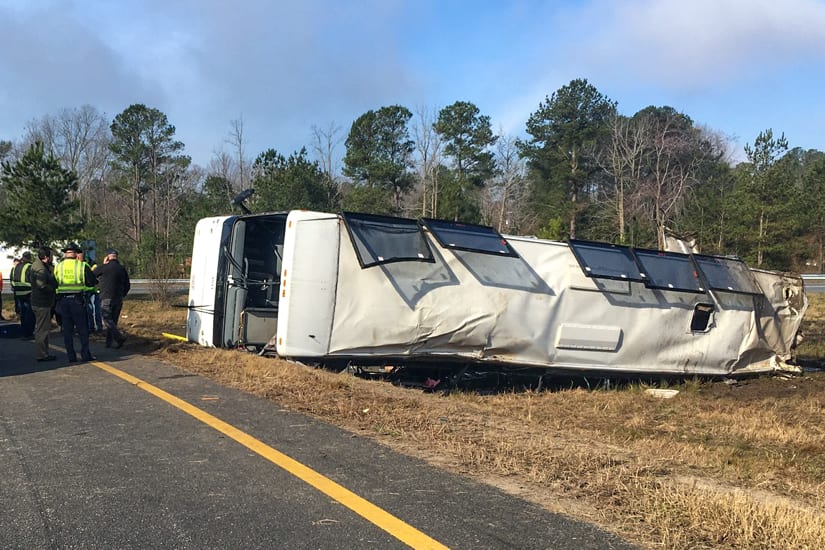In this recent tragedy, the Commonwealth of Virginia can be sued for negligent highway design, and the driver for negligent driving.

By C. James Williams III, Principal attorney, Hopewell, Midlothian.
When I advise clients about the laws governing motor vehicle accidents, I am occasionally asked: Can the government be included in the claim against the driver? This question usually comes up when someone believes that the roadway could have been more carefully designed. The answer to the question is: Yes – under the right circumstances. This week’s Prince George County bus accident tragedy is a good example.
In most motor vehicle accidents, human error is the lead factor. No matter how safely a car is designed, a driver’s mistake is usually the key element in causing the victim’s injuries, and in personal injury law that driver is held responsible for the damages. But in some cases, design flaws in the vehicle can cause an accident, in which case the car company may be held responsible for a victim’s injuries, as Audi was in the “sudden acceleration” cases in the mid-1980s.
Somewhat similarly, mistakes in highway design can cause accidents, or be an additional cause of an accident, along with driver error.
My family’s roots are in Prince George County, dating all the way back to before World War II, which means that I’m familiar with just about every corner of the county. I frequently drive past and on the exit where this week’s bus accident happened, and I remember being confused the first time I took it. My confusion came from the fact that Exit 45, as you approach it, appears to be a ramp for interstate I-295, not an exit to a secondary county road. It would be easy for anyone to make the mistake of approaching the exit at an unsafe speed if the route was unfamiliar.
The facts of this accident are still being collected, but from the information reported in the newspapers, in my opinion it seems that not only is the driver potentially at fault for speeding, but so is the Commonwealth of Virginia for creating an unsafe situation with confusing signage. The bus driver may not have slowed sufficiently because (like many of us before him) he believed he was merging onto another interstate highway rather than slowing for a sharp turn to a county road.
So, can the Commonwealth be sued in an accident like this? Generally the doctrine of Sovereign Immunity prevents lawsuits against the government. This legal principle was originally applied to the King in England during medieval times. However, in the 20th century state legislatures enacted laws allowing civil lawsuits to be brought against the government. These laws were called “Tort Claims Acts,” and they now exist in all states. Tort claims acts remove the principle of sovereign immunity, allowing those injured by government conduct to file suit or damages in certain situations. (Interestingly, the federal tort claim act was passed after a joy-riding pilot of a B-25 Bomber crashed into New York City’s Empire State Building in 1945, killing eleven people.)
All of this means that if you are involved in a highway truck accident, or car accident that is not your fault, you should be sure to ask your attorney whether highway design might have contributed to the accident. If it was a contributing cause, you may have a federal or state tort claims act to pursue – in addition to any claim you may have against the driver responsible for the crash.